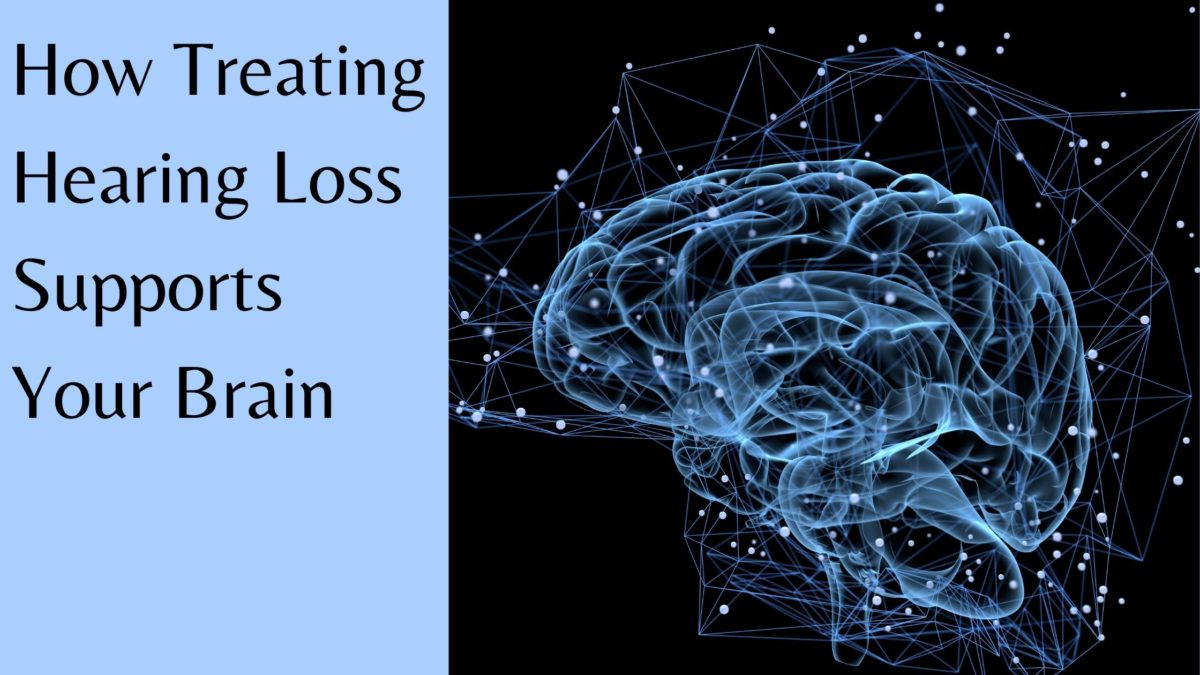- Tips for Using Hearing Aids in Different Environments - May 27, 2025
- Rechargeable Hearing Aids vs. Battery-operated Hearing Aids - May 16, 2025
- How to Effectively Communicate with Someone with Hearing Loss - May 7, 2025
Hearing loss, connection, cognitive health: what do these things have to do with each other? Socializing and connecting with other people daily not only makes our lives more enjoyable, but this contact is also essential to keeping our brains healthy. When untreated hearing loss interferes with the ability to communicate with others, especially in older people, the mind suffers. Read on for more information about why treating hearing loss is vital for healthy cognitive function.
How does hearing loss affect cognitive health?
Researchers are learning more and more about the health risks of untreated hearing loss, and one of the most compelling may be its effect on brain health. Hearing loss is strongly associated with aging, and it is not as harmless as once thought.
Scientific research suggests that hearing plays a crucial role in maintaining brain health. If left untreated, hearing loss can result in diminished cognitive function and even increase the risk of diseases like Alzheimer’s and dementia.
Studies on the link between hearing loss and the brain
Johns Hopkins University, led by Dr. Frank Lin, has produced the most comprehensive collection of studies on the link between hearing loss and dementia. Seniors with hearing loss are substantially more likely to develop dementia over time than those who retain their hearing,” according to a 2011 study. “A shared pathology may underpin both [hearing loss and dementia], or the strain of deciphering noises over time may overwhelm the brains of persons with hearing loss, making them more prone to dementia,” Dr. Lin and his colleagues speculate.
Other studies concur with the results of the Johns Hopkins study. According to data from the English Longitudinal Study on Aging, participants (age 50 and older) with hearing loss were more likely to have a dementia diagnosis than those with normal hearing. “The risk of getting dementia was 1.4 times higher in persons who reported intermediate hearing and 1.6 times higher in individuals who reported poor hearing,” according to the study. Hearing aids may “help postpone the onset of dementia” or “act as a risk signal of cognitive deterioration,” according to the study’s authors.
Researchers in Taiwan studied two groups: 4,105 people who had presbycusis (age-related hearing loss) and 4,103 people who didn’t. “The risk of dementia was significantly higher (1.3 times as high) among persons with age-related hearing loss,” they discovered. Similarly, between 2006 and 2010, researchers in Germany collected data from 154,783 persons in a study. “People with hearing impairment had a 1.2 to 1.4 times higher risk of dementia than people without hearing impairment,” they discovered.
So, what is it about hearing loss that has such a destructive impact on the brain? Several theories have been proposed in the realm of audiological research, yet no definitive explanation has yet been found. It’s been argued that the same pathology causes both disorders. The difficult work of deciphering noises overwhelms the brains of persons with hearing loss over time, making them more vulnerable to dementia. Hearing loss has also been linked to dementia, as it causes people to become more socially isolated, which increases the risk of dementia and other cognitive diseases.
Treating hearing loss improves brain health.
Although the vital link between hearing loss and dementia is worrying, a recent French study offers some hope. In the study, 94 people between the ages of 65 and 85 with profound deafness in at least one ear were given cochlear implants, along with twice-weekly auditory therapy.
The results were promising: over 80 percent of those with the lowest cognitive scores showed significant improvement one year after receiving the implant. This important finding may lead to increased intervention in hearing loss and reduce the rates of Alzheimer’s and dementia in senior citizens.
Take steps to correct your hearing today!
We provide comprehensive diagnostic and treatment options and the most advanced hearing aids on the market. We provide hearing checkups and diagnostic hearing evaluations to determine the cause and severity of your hearing loss. We will work with you to develop a treatment plan suited to your needs.

